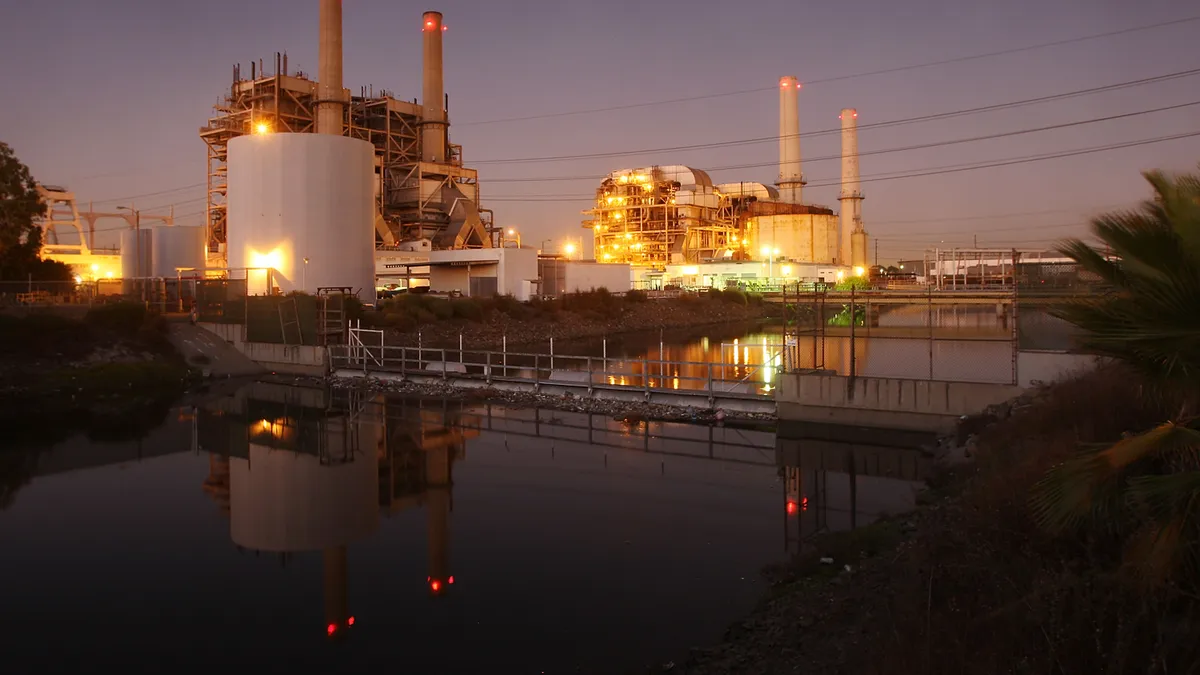Dive Brief:
-
Many U.S. communities won't reach their climate targets without transitioning away from natural gas, a panel of regulators and lawmakers agreed during a Thursday discussion hosted by the New York University School of Law. However, they said there's no clear path to eliminating the fuel.
-
Each of the most obvious paths forward comes with its own challenges, according to David Danner, chair of the Washington Utilities and Transportation Commission. Electrification can be costly and could leave lower-income ratepayers holding the bag, but repurposing gas infrastructure for use with renewable fuels relies on unproven technology not yet ready for mass deployment.
-
"The standard — not the moral standard, but the only way it will work — is it has to be practical," said John Rhodes, former chair of the New York Public Service Commission. "If we're going to demand that large chunks of society adopt a solution, it has to work."
Dive Insight:
The U.S. is making great strides toward decarbonizing electricity — in no small part because communities across the nation have figured out a decarbonizing model that works with existing markets, according to Rebecca Tepper, chief of the Massachusetts Attorney General's Energy and Environment Bureau. But electricity isn't the only utility that needs to decarbonize, she said, and moving away from natural gas is another matter entirely.
Nevada is well on its way to decarbonizing electricity, according to Assemblywoman Lesley Cohen, D, and has had a renewable energy portfolio standard in place since 1997 that in its latest iteration calls for the state to produce at least 50% of its electricity from renewables by 2030. But unless the state does something to reduce emissions from buildings, she said, the state will fall 19% short of its 2030 goal to reduce economy-wide emissions by 45%.
Cohen introduced a bill to require natural gas utilities in Nevada to engage in a long-term integrated resource planning process, but the bill wasn't brought to the floor. She said the failure of the bill was a casualty of disruptions caused by COVID-19, and by opposition from utilities and other organizations that spoke out against the bill.
"What makes this so challenging is you're trying to decarbonize something that is sold for the sole purpose of being burned," Danner said. "How do you decarbonize a carbon-based industry?"
And gas utilities, he said, are not eager to "sign their own death warrants," so it's unclear how to get them on board.
But the larger issue, Danner said, is not how to get gas utilities on board, but how to make an equitable transition. Renewable fuels that could make use of existing infrastructure aren't ready for immediate deployment, he said, and electrification could shift the economic burden of climate change mitigation to vulnerable low- and fixed-income populations who aren't able to immediately buy new appliances and retrofit their homes.
"This is what happens when you have this transition, you have a smaller and smaller customer base leading to higher costs for the people still on the system," Danner said. "That's going to be the lowest income customers who stay stuck."
Danner also noted that in regions where gas and electric services are provided by separate companies, the electric company stands to gain customers, while the gas company will gradually lose.
"I think getting money from customers is regressive," Rhodes concurred. "Raising money by utility rates is a way of taxing the most burdened, the most vulnerable, unduly."
Rhodes said he saw a good case for the use of tax dollars to help ease the transition in some capacity, but he said he believed the electric companies that stand to profit from a transition away from natural gas should also "share the burden."














